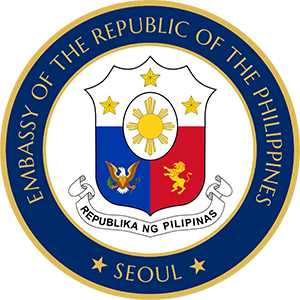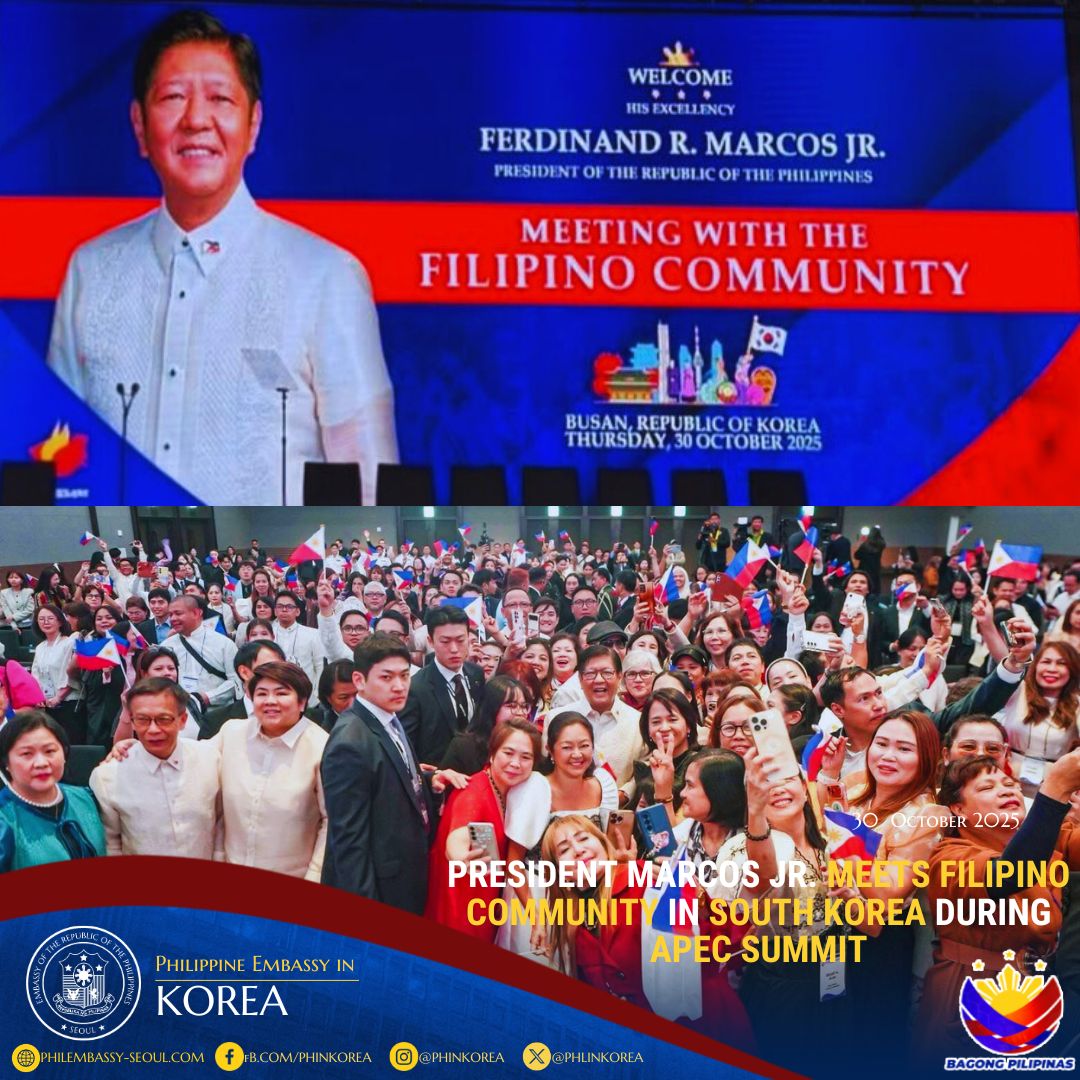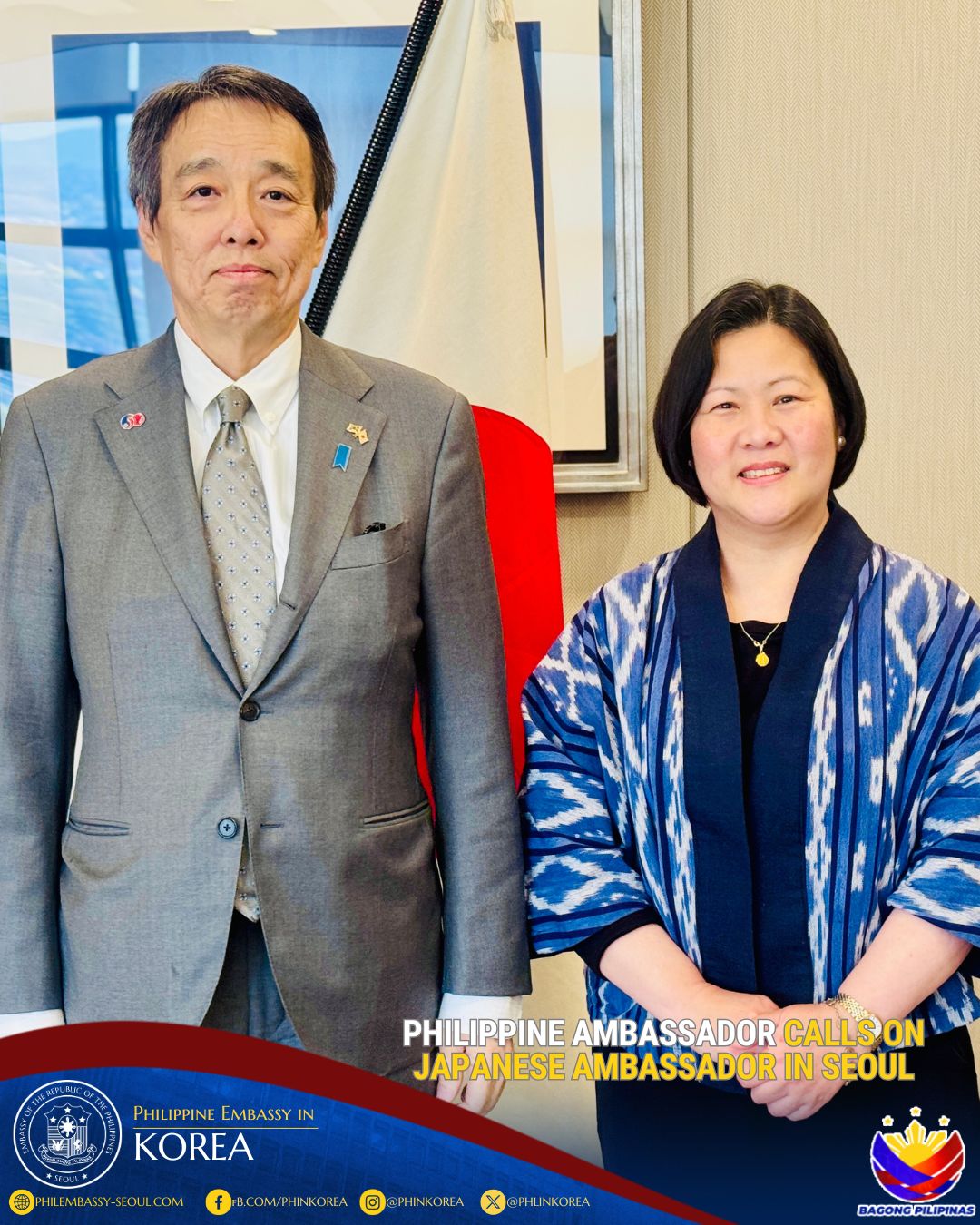PRESIDENT GLORIA MACAPAGAL ARROYO’S SPEECH DURING THE WELCOME RECEPTION FOR THE PHILIPPINES-REPUBLIC OF KOREA BUSINESS FORUM Fiesta Pavilion, Manila Hotel, City of Manila, MM, February 18, 2009
Thank you, Secretary Favila. Other Cabinet members, Mr. Chang, Don Emilio, Ambassador Choi, other officials of the Philippine government, leaders of the business community --both of Korea and of the Philippines, ladies and gentlemen: To our Korean friends, first of all, welcome to the Philippines! And to Manila Bulletin and the Maeil Business Newspaper, congratulations for organizing this Business Forum.
It is a testament to the strong and mutually-beneficial relationship that has characterized the ties between the Philippines and the Republic of Korea.As mentioned by Mr. Chang, I am very proud that in 1950, the Philippines participated in the Korean War by virtue of a Congressional Resolution authored by my father who was then Congressman and Chairman of the Committee on Foreign Relations.
And I am very proud that in recognition of this, when my father retired after 1965, he was invited to go to Korea and he brought me along where he received an award of appreciation from the Korean government.
And now, I’m equally proud that in celebrating this year, the 60th Anniversary of the establishment of our relations, I have the honor to declare 2009 as “Philippines-Republic of Korea Friendship Year†and the coming March 3rd as our “Friendship Day.â€
As we have heard from the speakers earlier, the partnership between our two countries is hearty and robust, especially in terms of economic and people-to- people interaction. Our number one tourists to the Philippines are the Koreans, and with students and retirees, as mentioned earlier, there are twice the number of Koreans in the Philippines as Filipinos in Korea.
When I made my state visit to Korea in 2003, the number of Filipinos in Korea was the same as the number of Koreans in the Philippines. But today, there are twice as many Koreans in the Philippines as Filipinos in Korea. Maybe that means something about how Koreans like being in the Philippines.
As mentioned by Mike Varela, Korean companies are among the country’s largest investors. There are about 900 Korean companies operating in the Philippines, among them such marquee names as Hanjin Heavy Industries, Samsung, LG, Eastern Group and the Korea Electric Power Corporation.
The billions of dollars that they have injected into the Philippines, particularly Hanjin’s factories in Subic and Misamis Oriental, KEPCO’s power plants in Batangas and Rizal, and now as of this week, Samsung’s logistics hub in Clark. All of these not only demonstrate the Korean private sector’s belief and confidence in the Philippine economy, but also the Korean people’s willingness to help uplift the lot of the Filipinos by providing thousands of good jobs and creating opportunities for livelihood.
Even in development cooperation, the Republic of Korea has been a dependable partner, helping us achieve our Medium-Term Philippine Development Plan, always conforming to the priorities of the Philippine government. The Republic of Korea’s aid program to the Philippines has been increasing significantly each year in areas like infrastructure. For instance, the Metro Manila-North/South Railway Link; the Olongapo-San Fernando-Gapan Road widening which passes through my hometown; the Laguindingan Airport in Mindanao; health projects, like the Cavite Hospital; information technology, like the training centers in Quezon City, Davao and other places; and agriculture.
And I am glad that now we have this business delegation to look at more opportunities in the Philippines. The Philippines has weathered the initial global shocks of the world economic crisis quite well because of the painful reform medicine we took several years ago. We took our economic medicine through fundamental economic reform by raising taxes, cutting down on smuggling, reforming our tax collection system and our banking laws and regulations. Our reform moves paid off with revenue for investments in human and physical infrastructure and an economic performance that has seen 36 consecutive quarters of growth over the last eight years, including 8.0 percent GNP growth in 2007 and 6.0 percent GNP growth in 2008.
And I am hopeful that the G20, especially under the upcoming leadership of the Republic of Korea, will make positive strides in engaging both the developed and developing world in coordinating effective responses to the global crisis.
I also hope that we develop a series of closely consulted and meshed regional alliances to complement the G20, or what we hopefully will become even a G30. For example, the countries of ASEAN, Korea, China and Japan have reiterated the agreement to set up a multibillion-dollar multilateral foreign exchange reserve pool through what we call an “Enhanced Chiang Mai Initiative†to ensure liquidity in our region, and thereby contribute stability in the world.
In a couple of months from now, Korea will host the ASEAN-Korea Summit. And I am very glad that during that period, I will also have the opportunity to make yet another official bilateral visit to the Republic of Korea.
I will be sharing again with the business community there as I would like to share with you the Philippine Economic Resiliency Plan which aims to save and create jobs, protect the poorest of the poor and returning Overseas Filipino Workers as well as those in export industries. Also to ensure low and stable prices to support consumer spending so that all those electronics from Korea will still continue to find a good market here in the Philippines. And also it aims to enhance our country’s competitiveness in preparation for the global rebound that we know will happen.
First of all, we pump-prime the economy primarily by front-loading infrastructure investments in the first half of the year and by raising the absorptive capacity of government agencies to allow them to use their budgets productively and efficiently; And I am glad to see many Korean companies participating in this infrastructure investments. For example, I have been joking in Mindanao that the Cagayan de Oro-Iligan Corridor should be called the Hanjin Corridor because Hanjin has practically constructed every important infrastructure there including the road and now the Laguindingan International Airport.
In parallel, we are also focused on further raising revenues through improvements in tax administration and a public-private sector fund to support the initiatives in the resiliency plan. And we count on the leaders of the Philippine Business Community like Bulletin President Mike Varela to make this private-public sector fund a reality as soon as possible.
On the corporate front, we have provided tax relief for the private sector by reducing corporate income tax from 35 to 30 percent. Also, exempting minimum wage earners from personal income tax and increasing personal exemptions.
And to further enhance social protection, we are raising the allocation of conditional cash grants to the poorest households; we are doubling the funds for the national health insurance program to ensure the full national government contribution to that fund; and we are doubling the allocation for the Technical Education and Skills Development Authority, which is the recipient of Korean grants incidentally-- all these among other healthcare and education initiatives.
Finally, we are ensuring that adequate support is provided to our workers, both domestically and overseas, through retraining programs to ensure they remain competitive and able to fully take advantage of job opportunities and find higher paying jobs; and also through reintegration services and livelihood assistance should any expatriate workers in Korea or in any part of the world return to the Philippines.
We are doing all these to take care of our people during the difficult times with the whole world, but also to ensure that you, the Korean investors invest in the Philippines. If you decide to go into the export market, you have the skilled Filipinos, the great Filipino worker making you competitive. And if you decide to invest for the domestic market, you have the consumer, the Filipino consumer who has the ability and the willingness to pay for the products that you produce.
This morning, I had a visitor, an American CEO of one of the large corporations dealing in, not export, but services for the domestic market. And he was telling me about how, though in his home country even during the height of the Christmas season, hardly anybody was buying things in the malls and department stores and boutiques. But he went to a mall yesterday, on a Tuesday, and it was so crowded with consumers. So, he is very confident about the consumption patterns of our country. I told him if that was the crowd you saw on a Tuesday, can you imagine what it will be if you were to go on Friday evening or Saturday anytime during the day.
So, dear friends from Korea, we must help our two countries navigate the current world economic crisis. We must combine the wisdom of our shared past and an enthusiasm for our common future to create a firm and strategic bond of cooperation. Very few relations exceed the warmth and depth that is found in the cordial and amiable friendship between the Philippines and Korea. Koreans are such a visible part of any scenery in the Philippines. In Baguio, for instance, in the John Hay Country Club for every one Filipino flight, you will find five Korean flights -- they’re there, they stay there, their children study English, and they play golf, and they’re very much a part of that community. And we’re only talking about one of the many that have Koreans as a very visible part of the community.
I flew over an area in Northern Cebu and I saw a golf course dedicated to Korean players and I saw a very nice housing project dedicated to the players who want to stay there whether a few days, a few weeks, a few months or a few years depending on what they’re doing in the Philippines.
And so, this is our relationship -- 60 years after we started and also after that first flight to the Philippines mentioned by Mr. Chang when there were only five passengers coming to the Philippines. Well, we heard from Mr. Chang that 60 years represents an important milestone in Korean philosophy. He said 60 years symbolizes the beginning of a new cycle, a fresh start, a new round.
So this year is a fresh start for our two countries as we celebrate our yesteryears with an eager participation of a stronger, brighter tomorrow. Notwithstanding the global economic crisis, I am optimistic that the future is bright -- bright for the Philippines, bright for Korea, bright for a more vigorous partnership and a meaningful interaction between our two countries and our two peoples.
Thank you. Kamsahamnida.



 November 20, 2025
November 20, 2025
 November 18, 2025
November 18, 2025
 November 17, 2025
November 17, 2025
